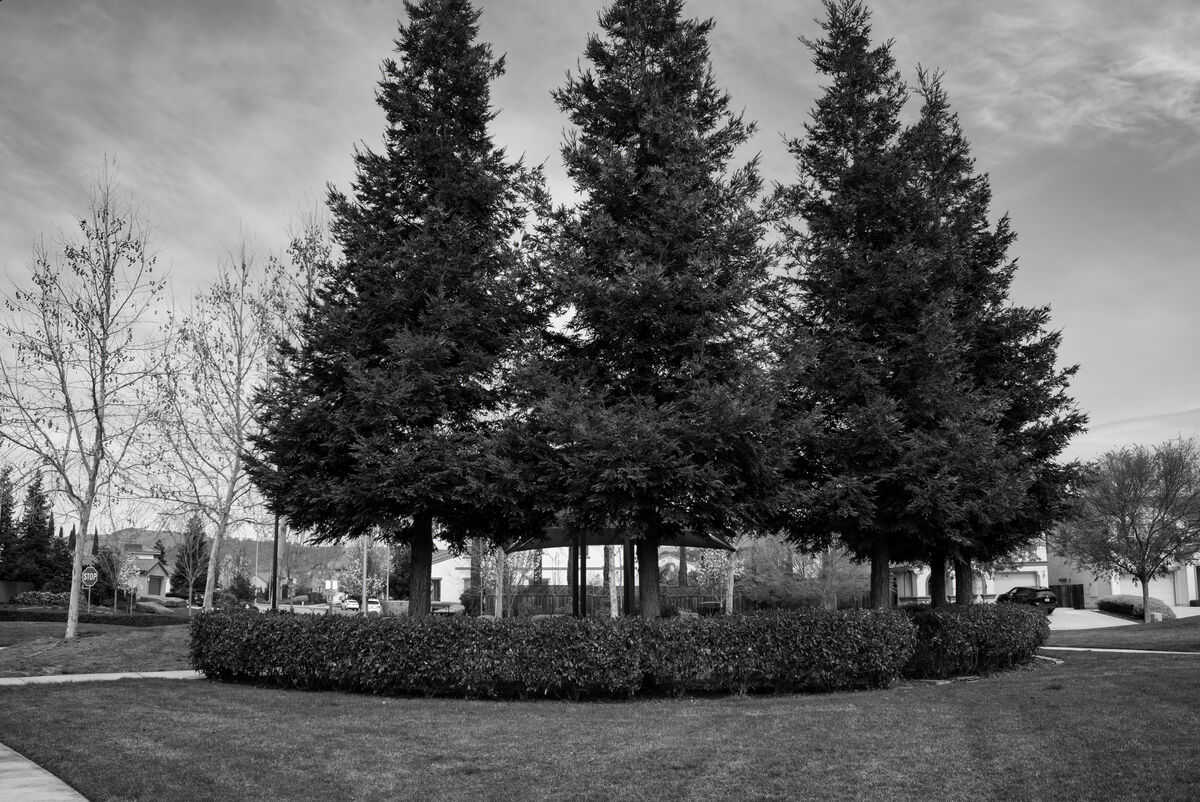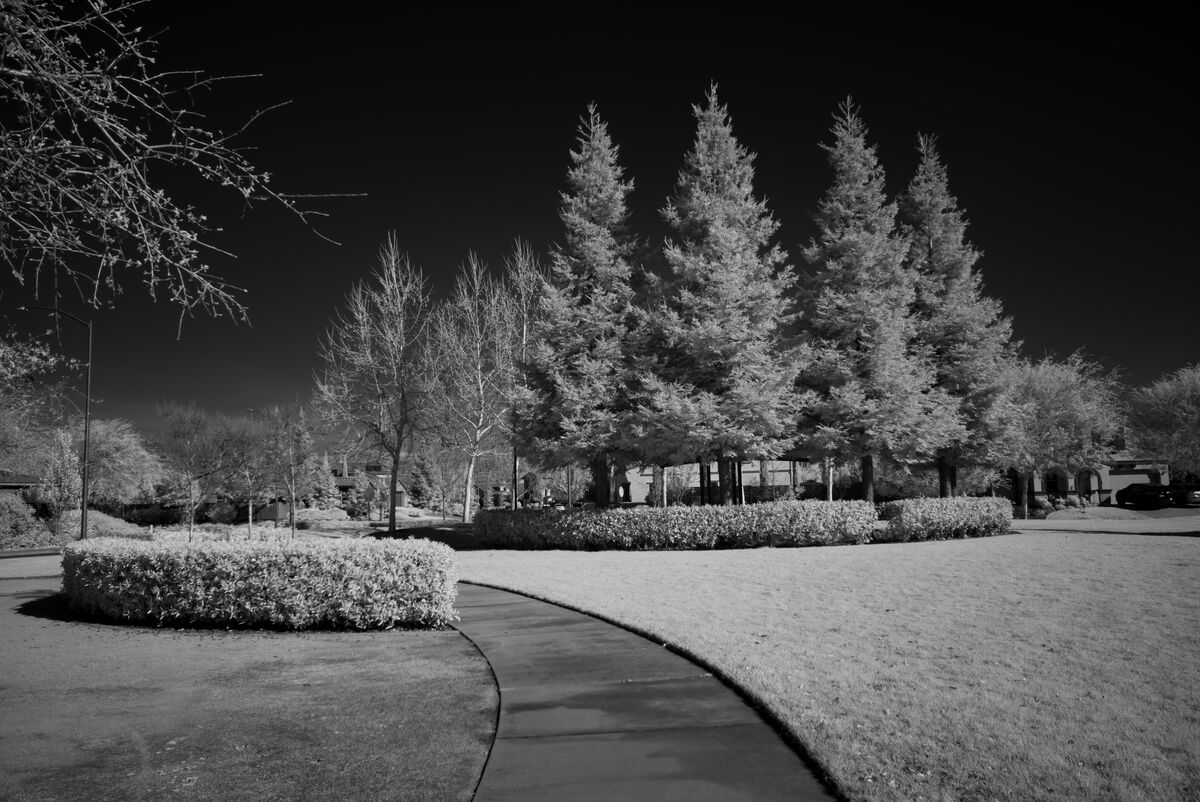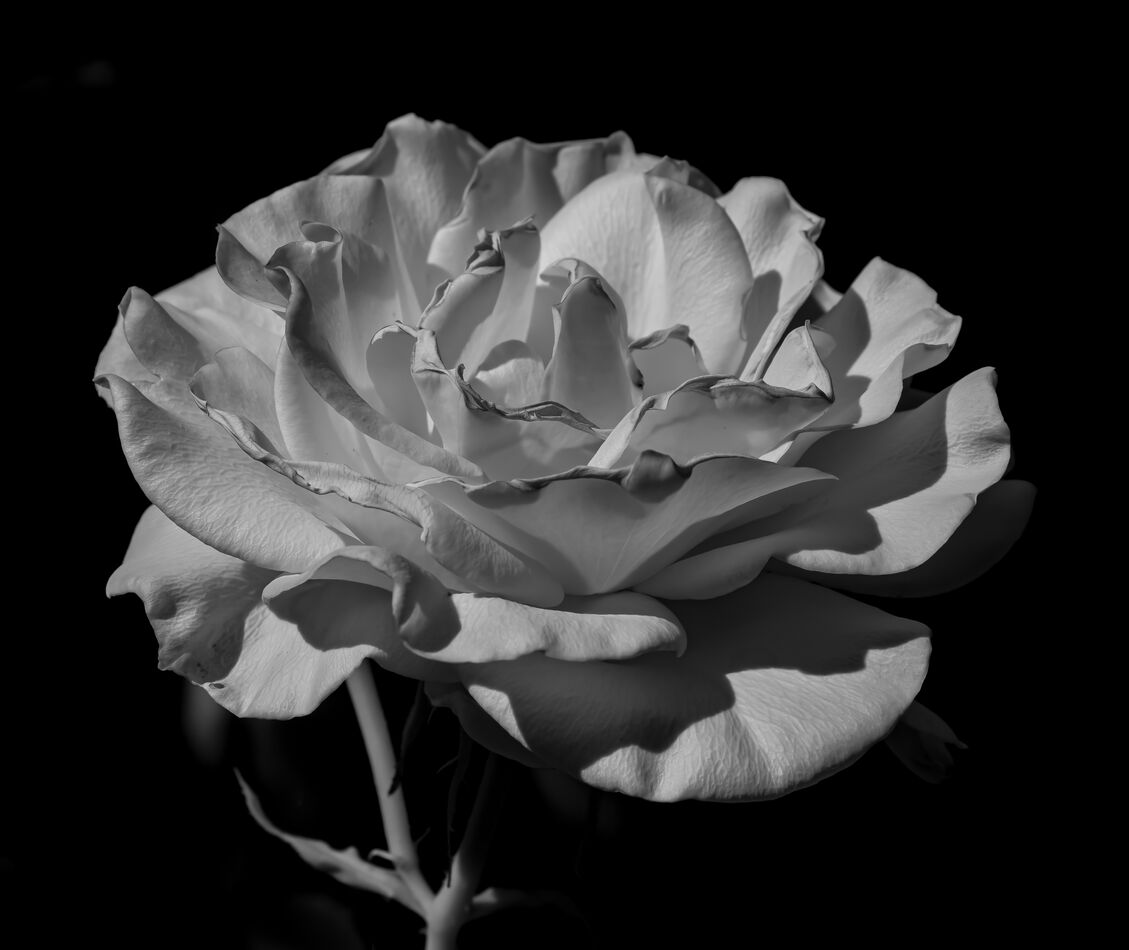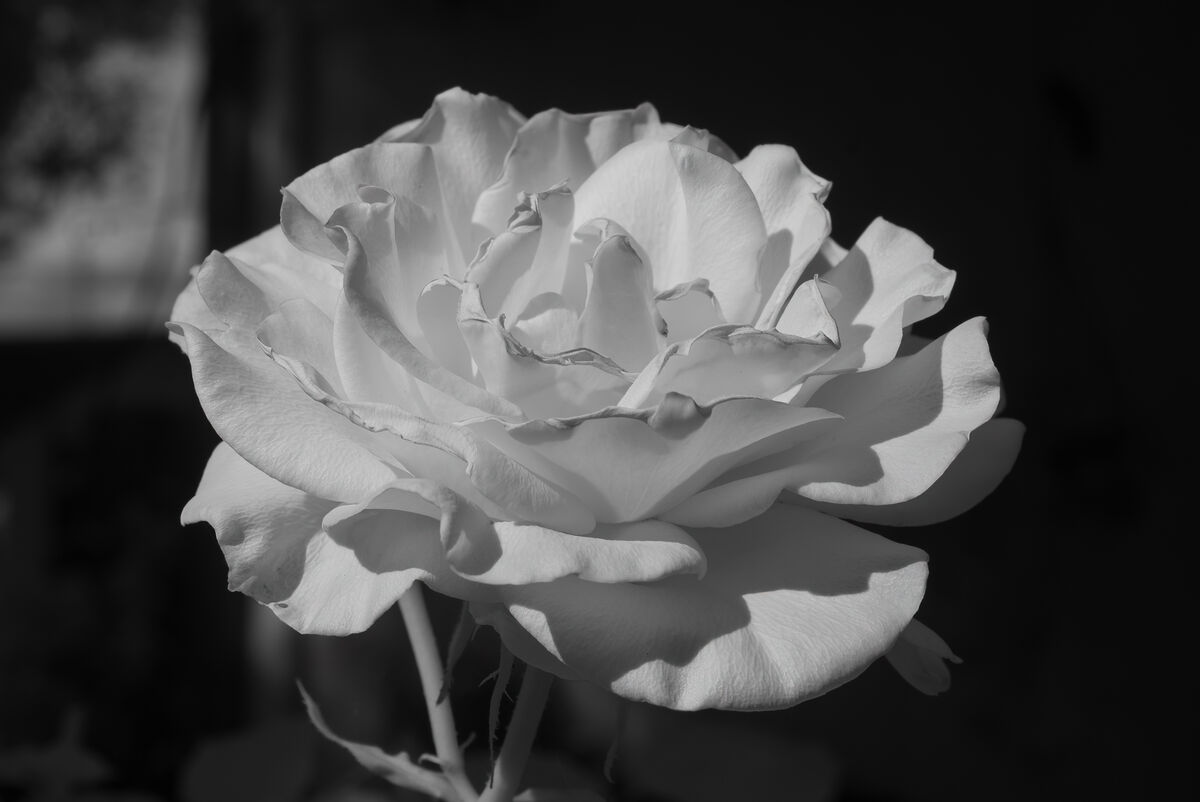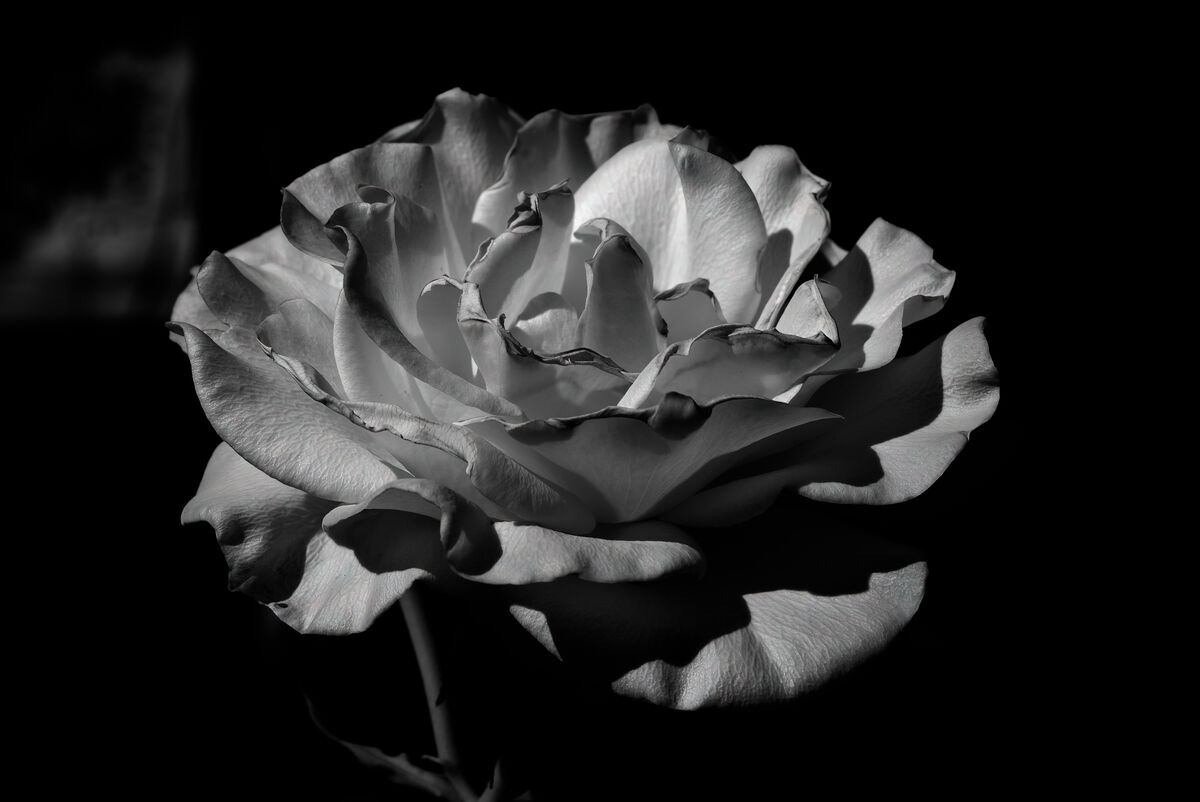monochrome versus color conversion to B&W
Aug 23, 2023 20:04:59 #
I am thinking about having one of my digital cameras coverted to monochrome. Before I do that, (1) does anyone have experience having that done and any warning cautions; and (b) has anyone experimented with the difference in image quality between a color image converted into B&W (Lightroom or PhotoShop) and an image originally shot in monochrome? Is it really worth it to convert to pure monochrome? I am willing to do it if there is a discernbile different in resolution, sharpness and overall image quality. thanks.
Aug 23, 2023 20:13:52 #
It will be interesting to see why some do not like simply removing color in an editor.
Aug 23, 2023 20:16:04 #
Ysarex
Loc: St. Louis
dkeysser wrote:
I am thinking about having one of my digital camer... (show quote)
There is a discernable difference in resolution/sharpness. That's a positive. The negative is you will lose the post processing advantage to selectively modify tone response by color. Personally I would not give that up in exchange for the resolution/sharpness boost. I will continue to prefer creating B&W images from color raw files.
The illustration below is pushed to extremes to make the point, but you'd lose that post process ability. A rose can be white or black if I start with color. Otherwise it's going to be grey if you remove the CFA.
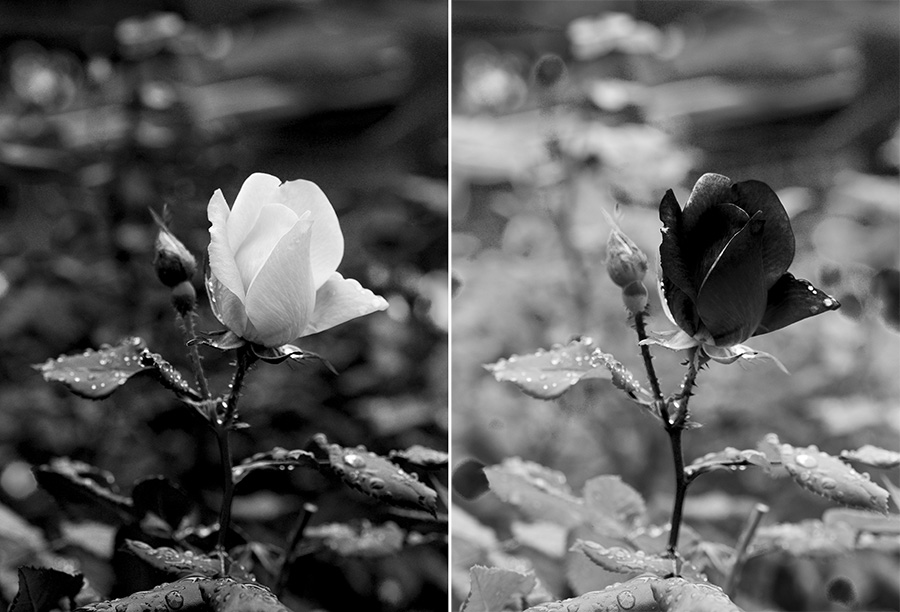
Aug 23, 2023 20:30:44 #
Aug 23, 2023 21:31:34 #
Longshadow wrote:
It will be interesting to see why some do not like simply removing color in an editor.
It was somewhat interesting in the last several exact same discussions this year ... but its not interesting anymore. Its just yesterdays news.
Aug 23, 2023 21:39:16 #
Aug 23, 2023 21:56:08 #
User ID wrote:
It was somewhat interesting in the last several exact same discussions this year ... but its not interesting anymore. Its just yesterdays news.
So I suppose your point is that you don't like re-capping? Even for <new> people who didn't see the prior discussions?
Oh, I forgot, once a subject is discussed, it's to be buried........
Aug 23, 2023 23:33:02 #
dkeysser wrote:
I am thinking about having one of my digital camer... (show quote)
I have had a camera modified at monochromeimaging.com where this person specializes in Sony e-mount cameras. I have loved using a monochrome camera and I find that I have used this camera far more than I thought I would use it.
I had the option to remove the UV-IR filter also which makes this camera full spectrum.
Before talking about a couple sample images, some are confused about the B&W setting on their cameras. Let me explain for them that it is not a true B&W image. The camera still captures in RAW (which is in color) and then the camera does its own conversion to B&W in which you are not in charge of what the camera does, and does it's own demosacing for conversion to JPEGs. Most likely, if you were to not let the camera do the conversion, but instead do it yourself in post processing, you could do better.
Image 1, I used an UV-IR cut filter in order to only use visible light, and you can see how leaves appear darker.
Image 2, I removed the UV-IR cut filter, and replaced it with a 720nm filter. The image is in the same direction, but I see I was not as close to the center trees. The filter has lightened the grass and trees as the camera is now sensitive the reflected IR light. I tend to favor either 590nm or 720nm as they both allow some visible light to mix in (more with the 590nm).
I have been very pleased with the results and struggle to match it using a color camera and converting to monochrome. B&W done with a monochrome sensor provides a pleasing grayscale that I like a lot. I also find that as I use longer wavelength filters such as 850nm, that the richness of the grayscale is reduced and the images tend to be harsher.
There is a noticeable difference in resolution in that the monochrome sensor needs no demosaicing. Demosaicing causes that numerous pixels are averaged together so that a red, a blue and a green value can be computed for each output pixel. Monochrome sensors don't need this and use the sensor results directly. Where I see the biggest impact on this is astrophotography where stars are point sources of light and demosaicing is actually detrimental to the stars IQ.
If I had it to do over again, I would have converted a full frame camera and not the Sony APS-C A6300 that I used. The reason for this is that the A6300 only has the option to use lossy RAW compression and its lossy results can be seen in the image when you know what to look for. This deficiency does not seem to be a problem in the older A7ii which also allows for uncompressed RAW for which the A6300 does not even have.
There is a software application called "monochrome2DNG" that converts the RAW files into a non-demosaiced DNG file that doesn't need much post processing.
Aug 24, 2023 00:02:18 #
dkeysser wrote:
Is it really worth it to convert to pure monochrome? I am willing to do it if there is a discernbile different in resolution, sharpness and overall image quality. thanks.
It depends.
I had a 24MP A7 II converted to monochrome and the increase in sharpness was obvious. I later got a 45.7MP Z7 and found that the results were about the same using the same lens when I did a B&W conversion to the Z7 raw file. If I hadn't had both options I would not have been able to confirm this. But either option is well beyond the capability of most of my lenses.
If you already have an A7R3 or A7R4, don't bother with the monochrome conversion unless you also intend to invest a fortune in upgraded lenses. There is nothing you can do to improve your B&W images with the equivalent of 80 to 120 MP.
Aug 24, 2023 00:46:54 #
Ysarex wrote:
There is a discernable difference in resolution/sh... (show quote)
Here is a red rose with a red filter (and some IR light that goes through the red filter) on a mono sensor.
Of course, I still have the option for it to be whiter as in image2.
Or even make it darker as in image 3.
Using software colored filters makes no sense. But I still have Photoshop to play with it.
Aug 24, 2023 01:05:54 #
User ID wrote:
It was somewhat interesting in the last several exact same discussions this year ... but its not interesting anymore. Its just yesterdays news.
Oh wow, it's so sad to see you back
Aug 24, 2023 04:40:24 #
This was somewhat interesting in the last several exact same discussions this year ... but its not interesting anymore. Its just yesterdays news.
Aug 24, 2023 06:46:06 #
I’ve been using my film camera with B&W film. Based on that experience, I wouldn’t want a camera which was permanently stuck on B&W, that I couldn’t switch to color simply by switching the type of film loaded.
Aug 24, 2023 06:47:49 #
User ID wrote:
This was somewhat interesting in the last several exact same discussions this year ... but its not interesting anymore. Its just yesterdays news.
And this is “today’s complaint”.
Aug 24, 2023 08:35:37 #
Ysarex
Loc: St. Louis
JimH123 wrote:
Here is a red rose with a red filter (and some IR light that goes through the red filter) on a mono sensor.
Yes, you can still use filters in front of the lens, but that's far less flexible than working with a color image in post. That's why I noted post processing specifically. Beyond the investment and fussing around with filters their effect is global. In post processing tone conversion control can be applied locally. In the photo below two pink flowers were separately converted to b&w -- one lightened and the other darkened.
I'm not giving up that ease-of-use and flexibility for what I see as a pretty minor boost in resolution.
JimH123 wrote:
Of course, I still have the option for it to be whiter as in image2.
Or even make it darker as in image 3.
Using software colored filters makes no sense. But I still have Photoshop to play with it.
Or even make it darker as in image 3.
Using software colored filters makes no sense. But I still have Photoshop to play with it.
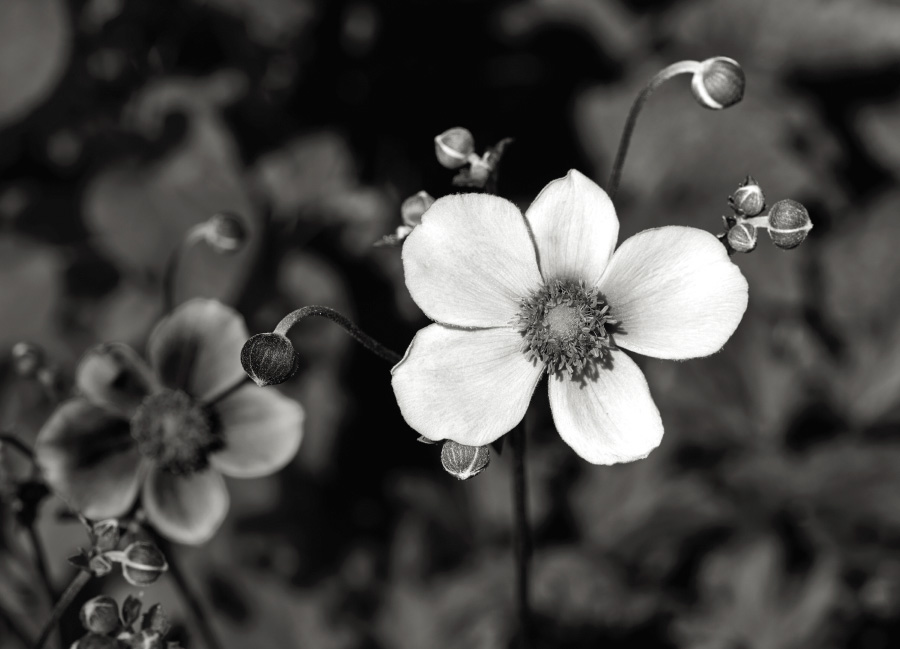
If you want to reply, then register here. Registration is free and your account is created instantly, so you can post right away.



